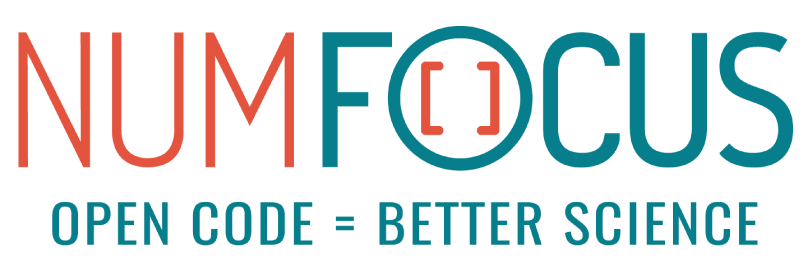Modern C++ Parallel Task Programming
Taskflow helps you quickly write parallel and heterogeneous task programs with high performance and simultaneous high productivity. It is faster, more expressive, fewer lines of code, and easier for drop-in integration than many of existing task programming libraries. The source code is available in our Project GitHub.
Start Your First Taskflow Program
The following program (simple.cpp) creates four tasks A, B, C, and D, where A runs before B and C, and D runs after B and C. When A finishes, B and C can run in parallel.
#include <taskflow/taskflow.hpp> // Taskflow is header-only int main(){ tf::Executor executor; tf::Taskflow taskflow; auto [A, B, C, D] = taskflow.emplace( // create four tasks [] () { std::cout << "TaskA\n"; }, [] () { std::cout << "TaskB\n"; }, [] () { std::cout << "TaskC\n"; }, [] () { std::cout << "TaskD\n"; } ); A.precede(B, C); // A runs before B and C D.succeed(B, C); // D runs after B and C executor.run(taskflow).wait(); return 0; }
Taskflow is header-only and there is no wrangle with installation. To compile the program, clone the Taskflow project and tell the compiler to include the headers under taskflow/.
~$ git clone https://github.com/taskflow/taskflow.git # clone it only once ~$ g++ -std=c++17 simple.cpp -I taskflow/ -O2 -pthread -o simple ~$ ./simple TaskA TaskC TaskB TaskD
Taskflow comes with a built-in profiler, Taskflow Profiler, for you to profile and visualize taskflow programs in an easy-to-use web-based interface.

# run the program with the environment variable TF_ENABLE_PROFILER enabled ~$ TF_ENABLE_PROFILER=simple.json ./simple ~$ cat simple.json [ {"executor":"0","data":[{"worker":0,"level":0,"data":[{"span":[172,186],"name":"0_0","type":"static"},{"span":[187,189],"name":"0_1","type":"static"}]},{"worker":2,"level":0,"data":[{"span":[93,164],"name":"2_0","type":"static"},{"span":[170,179],"name":"2_1","type":"static"}]}]} ] # paste the profiling json data to https://taskflow.github.io/tfprof/
Create a Subflow Graph
Taskflow supports recursive tasking for you to create a subflow graph from the execution of a task to perform recursive parallelism. The following program spawns a task dependency graph parented at task B.
tf::Task A = taskflow.emplace([](){}).name("A"); tf::Task C = taskflow.emplace([](){}).name("C"); tf::Task D = taskflow.emplace([](){}).name("D"); tf::Task B = taskflow.emplace([] (tf::Subflow& subflow) { // subflow task B tf::Task B1 = subflow.emplace([](){}).name("B1"); tf::Task B2 = subflow.emplace([](){}).name("B2"); tf::Task B3 = subflow.emplace([](){}).name("B3"); B3.succeed(B1, B2); // B3 runs after B1 and B2 }).name("B"); A.precede(B, C); // A runs before B and C D.succeed(B, C); // D runs after B and C
Integrate Control Flow into a Task Graph
Taskflow supports conditional tasking for you to make rapid control-flow decisions across dependent tasks to implement cycles and conditions in an end-to-end task graph.
tf::Task init = taskflow.emplace([](){}).name("init"); tf::Task stop = taskflow.emplace([](){}).name("stop"); // creates a condition task that returns a random binary tf::Task cond = taskflow.emplace([](){ return std::rand() % 2; }).name("cond"); // creates a feedback loop {0: cond, 1: stop} init.precede(cond); cond.precede(cond, stop); // moves on to 'cond' on returning 0, or 'stop' on 1
Offload Tasks to a GPU
Taskflow supports GPU tasking for you to accelerate a wide range of scientific computing applications by harnessing the power of CPU-GPU collaborative computing using CUDA.
__global__ void saxpy(int n, float a, float *x, float *y) { int i = blockIdx.x*blockDim.x + threadIdx.x; if (i < n) { y[i] = a*x[i] + y[i]; } } tf::Task cudaflow = taskflow.emplace([&](tf::cudaFlow& cf) { tf::cudaTask h2d_x = cf.copy(dx, hx.data(), N).name("h2d_x"); tf::cudaTask h2d_y = cf.copy(dy, hy.data(), N).name("h2d_y"); tf::cudaTask d2h_x = cf.copy(hx.data(), dx, N).name("d2h_x"); tf::cudaTask d2h_y = cf.copy(hy.data(), dy, N).name("d2h_y"); tf::cudaTask saxpy = cf.kernel((N+255)/256, 256, 0, saxpy, N, 2.0f, dx, dy) .name("saxpy"); // parameters to the saxpy kernel saxpy.succeed(h2d_x, h2d_y) .precede(d2h_x, d2h_y); }).name("cudaFlow");
Compose Task Graphs
Taskflow is composable. You can create large parallel graphs through composition of modular and reusable blocks that are easier to optimize at an individual scope.
tf::Taskflow f1, f2; // create taskflow f1 of two tasks tf::Task f1A = f1.emplace([]() { std::cout << "Task f1A\n"; }).name("f1A"); tf::Task f1B = f1.emplace([]() { std::cout << "Task f1B\n"; }).name("f1B"); // create taskflow f2 with one module task composed of f1 tf::Task f2A = f2.emplace([]() { std::cout << "Task f2A\n"; }).name("f2A"); tf::Task f2B = f2.emplace([]() { std::cout << "Task f2B\n"; }).name("f2B"); tf::Task f2C = f2.emplace([]() { std::cout << "Task f2C\n"; }).name("f2C"); tf::Task f1_module_task = f2.composed_of(f1).name("module"); f1_module_task.succeed(f2A, f2B) .precede(f2C);
Launch Asynchronous Tasks
Taskflow supports asynchronous tasking. You can launch tasks asynchronously to dynamically explore task graph parallelism.
tf::Executor executor; // create asynchronous tasks directly from an executor std::future<int> future = executor.async([](){ std::cout << "async task returns 1\n"; return 1; }); executor.silent_async([](){ std::cout << "async task does not return\n"; }); // create asynchronous tasks with dynamic dependencies tf::AsyncTask A = executor.silent_dependent_async([](){ printf("A\n"); }); tf::AsyncTask B = executor.silent_dependent_async([](){ printf("B\n"); }, A); tf::AsyncTask C = executor.silent_dependent_async([](){ printf("C\n"); }, A); tf::AsyncTask D = executor.silent_dependent_async([](){ printf("D\n"); }, B, C); executor.wait_for_all();
Run a Taskflow through an Executor
The executor provides several thread-safe methods to run a taskflow. You can run a taskflow once, multiple times, or until a stopping criteria is met. These methods are non-blocking with a tf::Future<void> return to let you query the execution status.
// runs the taskflow once tf::Future<void> run_once = executor.run(taskflow); // wait on this run to finish run_once.get(); // run the taskflow four times executor.run_n(taskflow, 4); // runs the taskflow five times executor.run_until(taskflow, [counter=5](){ return --counter == 0; }); // blocks the executor until all submitted taskflows complete executor.wait_for_all();
Leverage Standard Parallel Algorithms
Taskflow defines algorithms for you to quickly express common parallel patterns using standard C++ syntaxes, such as parallel iterations, parallel reductions, and parallel sort.
// standard parallel CPU algorithms tf::Task task1 = taskflow.for_each( // assign each element to 100 in parallel first, last, [] (auto& i) { i = 100; } ); tf::Task task2 = taskflow.reduce( // reduce a range of items in parallel first, last, init, [] (auto a, auto b) { return a + b; } ); tf::Task task3 = taskflow.sort( // sort a range of items in parallel first, last, [] (auto a, auto b) { return a < b; } );
Additionally, Taskflow provides composable graph building blocks for you to efficiently implement common parallel algorithms, such as parallel pipeline.
// create a pipeline to propagate five tokens through three serial stages tf::Pipeline pl(num_lines, tf::Pipe{tf::PipeType::SERIAL, [](tf::Pipeflow& pf) { if(pf.token() == 5) { pf.stop(); } }}, tf::Pipe{tf::PipeType::SERIAL, [](tf::Pipeflow& pf) { printf("stage 2: input buffer[%zu] = %d\n", pf.line(), buffer[pf.line()]); }}, tf::Pipe{tf::PipeType::SERIAL, [](tf::Pipeflow& pf) { printf("stage 3: input buffer[%zu] = %d\n", pf.line(), buffer[pf.line()]); }} ); taskflow.composed_of(pl) executor.run(taskflow).wait();
Visualize Taskflow Graphs
You can dump a taskflow graph to a DOT format and visualize it using a number of free GraphViz tools such as GraphViz Online.
tf::Taskflow taskflow; tf::Task A = taskflow.emplace([] () {}).name("A"); tf::Task B = taskflow.emplace([] () {}).name("B"); tf::Task C = taskflow.emplace([] () {}).name("C"); tf::Task D = taskflow.emplace([] () {}).name("D"); tf::Task E = taskflow.emplace([] () {}).name("E"); A.precede(B, C, E); C.precede(D); B.precede(D, E); // dump the graph to a DOT file through std::cout taskflow.dump(std::cout);
Supported Compilers
To use Taskflow, you only need a compiler that supports C++17:
- GNU C++ Compiler at least v8.4 with -std=c++17
- Clang C++ Compiler at least v6.0 with -std=c++17
- Microsoft Visual Studio at least v19.27 with /std:c++17
- AppleClang Xcode Version at least v12.0 with -std=c++17
- Nvidia CUDA Toolkit and Compiler (nvcc) at least v11.1 with -std=c++17
- Intel C++ Compiler at least v19.0.1 with -std=c++17
- Intel DPC++ Clang Compiler at least v13.0.0 with -std=c++17 and SYCL20
Taskflow works on Linux, Windows, and Mac OS X.
Get Involved
Visit our Project Website and showcase presentation to learn more about Taskflow. To get involved:
- See release notes at Release Notes
- Read the step-by-step tutorial at Cookbook
- Submit an issue at issue tracker
- Learn more about our technical details at References
- Watch our 2020 CppCon Taskflow Talk and 2020 MUC++ Taskflow Talk
We are committed to support trustworthy developments for both academic and industrial research projects in parallel and heterogeneous computing. If you are using Taskflow, please cite the following paper we publised at 2022 IEEE TPDS:
- Tsung-Wei Huang, Dian-Lun Lin, Chun-Xun Lin, and Yibo Lin, "Taskflow: A Lightweight Parallel and Heterogeneous Task Graph Computing System," IEEE Transactions on Parallel and Distributed Systems (TPDS), vol. 33, no. 6, pp. 1303-1320, June 2022
More importantly, we appreciate all Taskflow Contributors and the following organizations for sponsoring the Taskflow project!
 |  |  |  |
 |
License
Taskflow is open-source under permissive MIT license. You are completely free to use, modify, and redistribute any work on top of Taskflow. The source code is available in Project GitHub and is actively maintained by Dr. Tsung-Wei Huang and his research group at the University of Wisconsin at Madison.